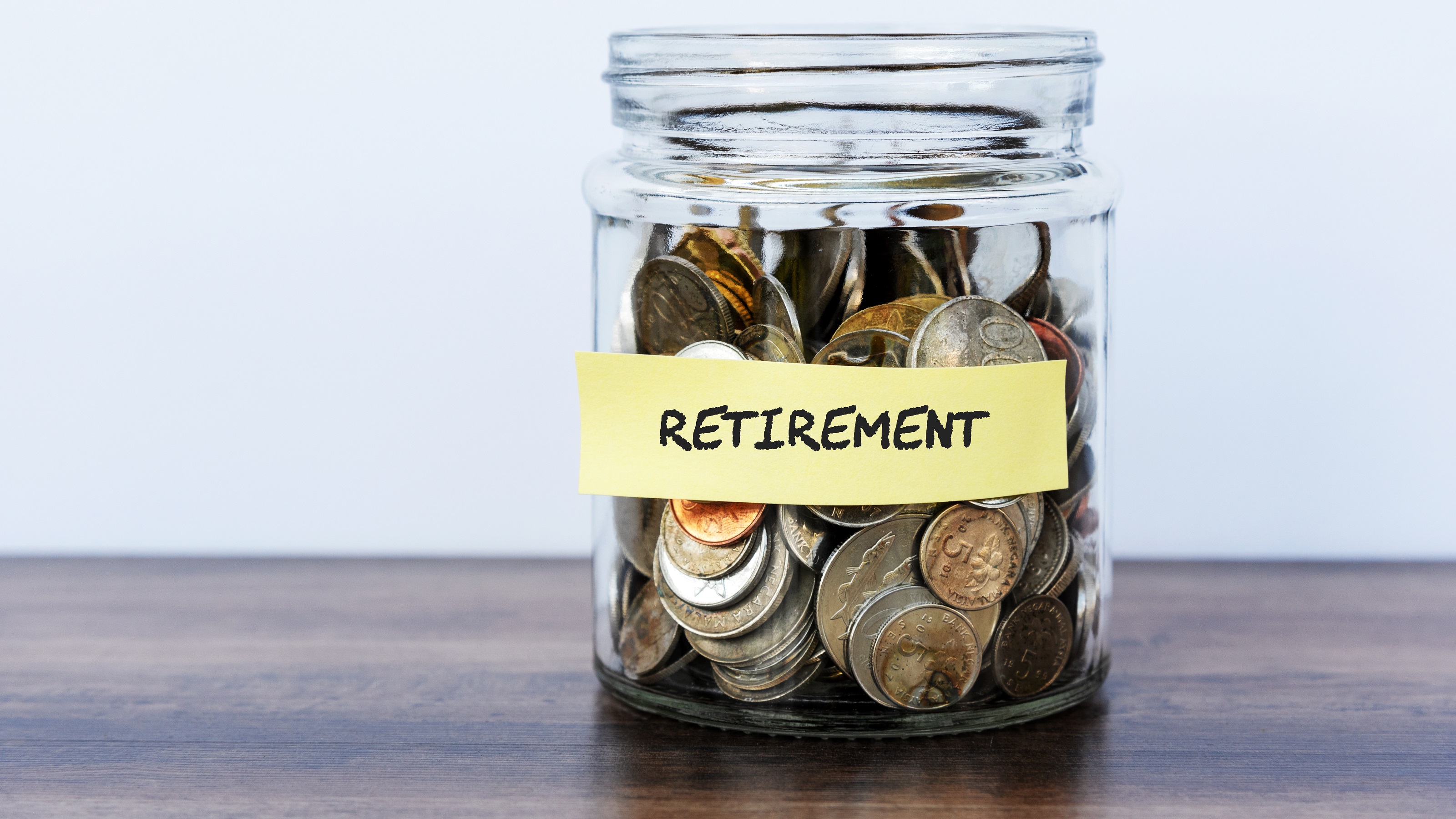How Much Do You Really Need to Save for Retirement?
Enough retirement savings for one person might not be nearly enough for another or way too much for someone else. Here’s what to consider.


Profit and prosper with the best of Kiplinger's advice on investing, taxes, retirement, personal finance and much more. Delivered daily. Enter your email in the box and click Sign Me Up.
You are now subscribed
Your newsletter sign-up was successful
Want to add more newsletters?

Delivered daily
Kiplinger Today
Profit and prosper with the best of Kiplinger's advice on investing, taxes, retirement, personal finance and much more delivered daily. Smart money moves start here.

Sent five days a week
Kiplinger A Step Ahead
Get practical help to make better financial decisions in your everyday life, from spending to savings on top deals.

Delivered daily
Kiplinger Closing Bell
Get today's biggest financial and investing headlines delivered to your inbox every day the U.S. stock market is open.

Sent twice a week
Kiplinger Adviser Intel
Financial pros across the country share best practices and fresh tactics to preserve and grow your wealth.

Delivered weekly
Kiplinger Tax Tips
Trim your federal and state tax bills with practical tax-planning and tax-cutting strategies.

Sent twice a week
Kiplinger Retirement Tips
Your twice-a-week guide to planning and enjoying a financially secure and richly rewarding retirement

Sent bimonthly.
Kiplinger Adviser Angle
Insights for advisers, wealth managers and other financial professionals.

Sent twice a week
Kiplinger Investing Weekly
Your twice-a-week roundup of promising stocks, funds, companies and industries you should consider, ones you should avoid, and why.

Sent weekly for six weeks
Kiplinger Invest for Retirement
Your step-by-step six-part series on how to invest for retirement, from devising a successful strategy to exactly which investments to choose.
One of the most commonly discussed topics in personal finance is knowing how much you need to save for retirement. Many news articles give specific numbers, with $1 million being a very common target. Those articles are meant to frighten: You need at least a million, they say, and the average person nearing retirement has saved only a fraction of that!
The trouble with target savings numbers is that they are typically aimed at a mass audience. Some individuals in the audience may need less than recommended for a comfortable retirement. Or, conversely, others may need much more. The amount you need for your dream retirement depends on a great number of factors that are specific to your unique financial situation.
These predictions can cause problems. If someone has a modest lifestyle and lives in an area that has a low cost of living, $1 million may be far more than they need. If they believe they must have that million, they might keep working longer than necessary and, when they finally do retire, might spend their days mired in anxiety because they unnecessarily think they don’t have enough put away.
From just $107.88 $24.99 for Kiplinger Personal Finance
Become a smarter, better informed investor. Subscribe from just $107.88 $24.99, plus get up to 4 Special Issues

Sign up for Kiplinger’s Free Newsletters
Profit and prosper with the best of expert advice on investing, taxes, retirement, personal finance and more - straight to your e-mail.
Profit and prosper with the best of expert advice - straight to your e-mail.
The opposite can also be true. A person who enjoys traveling the world, eating at high-end restaurants and who lives in an expensive area could find themselves in real trouble if they think they need only $1 million to retire. In both cases, generic advice could cause retirement problems.
Which guideline should you follow?
In general, one-size-fits-all advice is unlikely to fit everyone. You might be lucky enough to find generic advice that happens to be right for you, but why take that risk? This doesn’t mean everyone should be consulting with a financial adviser from the beginning of their working lives, but it does mean you should be choosy about which guidelines to follow.
If you were to take advice from someone who doesn’t know you or your situation, benchmark-based tips are often the wiser choice. Rather than aiming for a specific generalized number, consider aiming for target benchmarks. It’s more reasonable to set salary-based and age-based goals than it is to assume one single number works for everyone.
If you’re in your 30s, it's a good idea to have half of your annual salary saved for retirement. Once you reach age 50, three to six times your salary is a reasonable benchmark to aim for. Of course, it’s important to be flexible when saving based on benchmarks: If you just got a significant raise, don’t panic over the idea your savings goals are now woefully behind. But do consider using the extra income to supercharge your retirement savings.
Max out any matches offered by your employer; take advantage of that free money! If you can, contribute as much as you’re allowed to your 401(k). Remember, once you turn age 50, you’re allowed to make additional catch-up contributions, which can be valuable if you weren’t able to save as much as you’d have liked earlier in your career.
Tax planning plays a big role
Of particular importance — and something often missed by target-savings advice — is tax planning. The more money you have to give the government in retirement, the more you’ll need to have saved to maintain your desired lifestyle. Roth IRAs can be a great way to avoid retirement tax traps. While you pay taxes on contributions you make now, that money will grow tax-free, and you won’t pay taxes when you withdraw the money in retirement.
The bottom line is that we all need to be saving for retirement. Social Security was never designed to completely fund our expenses in retirement, and chances are good that it will pay less in the future than it does today. This means, unlike previous generations, today’s retirement savers must plan on funding a great deal more of their retirement, which means that aiming for a specific number, even if that number makes sense today, may still result in a shortfall when you actually retire.
Benchmark-based rules of thumb can act as guardrails, keeping us from falling off the financial cliff while allowing space for variance based on our unique circumstances. The best advice comes from a financial adviser who is familiar with your situation and can model your retirement finances. If you don’t have access to that level of advice, benchmarks are a good fallback option until you do.
Related Content
- How to Take a Break Without Breaking the Bank
- Here’s a Step-by-Step Guide to Retirement Planning by Age
- The Five Stages of Retirement (and How to Skip Three of Them)
- Five Things I Wish I’d Known Before I Retired
- Retirees’ Anti-Bucket List: 10 Experiences You Don’t Want
Profit and prosper with the best of Kiplinger's advice on investing, taxes, retirement, personal finance and much more. Delivered daily. Enter your email in the box and click Sign Me Up.

Jared Elson is a Series 65 Licensed Investment Adviser Representative (IAR) and the CEO of Authentikos Advisory. Following a 10-year career with Yahoo, Jared identified an acute need for sound financial counsel in the tech industry and has excelled in giving tech professionals the tools they need to grow and preserve their wealth.
-
 Dow Leads in Mixed Session on Amgen Earnings: Stock Market Today
Dow Leads in Mixed Session on Amgen Earnings: Stock Market TodayThe rest of Wall Street struggled as Advanced Micro Devices earnings caused a chip-stock sell-off.
-
 How to Watch the 2026 Winter Olympics Without Overpaying
How to Watch the 2026 Winter Olympics Without OverpayingHere’s how to stream the 2026 Winter Olympics live, including low-cost viewing options, Peacock access and ways to catch your favorite athletes and events from anywhere.
-
 Here’s How to Stream the Super Bowl for Less
Here’s How to Stream the Super Bowl for LessWe'll show you the least expensive ways to stream football's biggest event.
-
 How to Add a Pet Trust to Your Estate Plan: Don't Leave Your Best Friend to Chance
How to Add a Pet Trust to Your Estate Plan: Don't Leave Your Best Friend to ChanceAdding a pet trust to your estate plan can ensure your pets are properly looked after when you're no longer able to care for them. This is how to go about it.
-
 Want to Avoid Leaving Chaos in Your Wake? Don't Leave Behind an Outdated Estate Plan
Want to Avoid Leaving Chaos in Your Wake? Don't Leave Behind an Outdated Estate PlanAn outdated or incomplete estate plan could cause confusion for those handling your affairs at a difficult time. This guide highlights what to update and when.
-
 I'm a Financial Adviser: This Is Why I Became an Advocate for Fee-Only Financial Advice
I'm a Financial Adviser: This Is Why I Became an Advocate for Fee-Only Financial AdviceCan financial advisers who earn commissions on product sales give clients the best advice? For one professional, changing track was the clear choice.
-
 I Met With 100-Plus Advisers to Develop This Road Map for Adopting AI
I Met With 100-Plus Advisers to Develop This Road Map for Adopting AIFor financial advisers eager to embrace AI but unsure where to start, this road map will help you integrate the right tools and safeguards into your work.
-
 The Referral Revolution: How to Grow Your Business With Trust
The Referral Revolution: How to Grow Your Business With TrustYou can attract ideal clients by focusing on value and leveraging your current relationships to create a referral-based practice.
-
 This Is How You Can Land a Job You'll Love
This Is How You Can Land a Job You'll Love"Work How You Are Wired" leads job seekers on a journey of self-discovery that could help them snag the job of their dreams.
-
 65 or Older? Cut Your Tax Bill Before the Clock Runs Out
65 or Older? Cut Your Tax Bill Before the Clock Runs OutThanks to the OBBBA, you may be able to trim your tax bill by as much as $14,000. But you'll need to act soon, as not all of the provisions are permanent.
-
 The Key to a Successful Transition When Selling Your Business: Start the Process Sooner Than You Think You Need To
The Key to a Successful Transition When Selling Your Business: Start the Process Sooner Than You Think You Need ToWay before selling your business, you can align tax strategy, estate planning, family priorities and investment decisions to create flexibility.